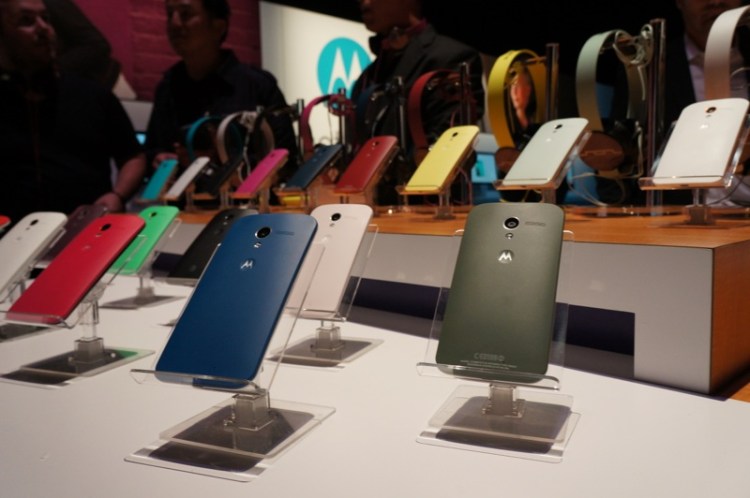Want smarter insights in your inbox? Sign up for our weekly newsletters to get only what matters to enterprise AI, data, and security leaders. Subscribe Now
Just when you thought the relationship between Google and its Motorola handset unit was finally clicking comes news that Google is dumping it.
Google announced this afternoon that it’s selling the Motorola Mobility division — which developed the innovative Moto X and inexpensive Moto G phones — to Lenovo for $2.91 billion. Lenovo will pay $1.41 billion when the deal closes — $660 million in cash and $750 million in stock — and the remaining $1.5 billion will come through a three-year promissory note. The news was first reported by Reuters and the New York Times.
Yes, all of this comes after Google spent a whopping $12.5 billion to snap up Moto Mobility back in 2011.
“The smartphone market is super competitive, and to thrive it helps to be all-in when it comes to making mobile devices,” wrote Google CEO Larry Page in a blog post today. “It’s why we believe that Motorola will be better served by Lenovo — which has a rapidly growing smartphone business and is the largest (and fastest-growing) PC manufacturer in the world. This move will enable Google to devote our energy to driving innovation across the Android ecosystem, for the benefit of smartphone users everywhere.”
Lenovo has made a splash in China with its smartphones, but it’s been slow to hit the North American and European markets. By buying Motorola Mobility, Lenovo would have instant access to those more lucrative markets.
The deal is yet another way for Lenovo to buy its way into an established industry. Last week, the company bought IBM’s low-end server business for $2.3 billion. And of course, Lenovo picked up the iconic ThinkPad brand when it bought IBM’s PC division for $1.25 billion in 2005.
But while it makes plenty of sense for Lenovo, it’s a curious choice for Google, which only recently started seeing the fruits of its acquisition. The Moto X was the first phone developed by Motorola under Google — and with its solid design and innovative voice control features, Google clearly benefited from that relationship.
More so than the Nexus 5, the Moto X seemed like a bold example of what a Google-developed phone could look like — Google’s answer to the iPhone, if you will.
From what I’ve been hearing, it seemed like Motorola never quite fit into Google. One source described the company’s organizational decisions for Motorola as “surreal” — for example, by reducing a 40 person team to a single person with the same productivity goals. Google also reportedly had a hard time managing Motorola’s core Chicago-based team.
Indeed, Motorola will likely fit in better at Lenovo, a company that’s shown some surprising hardware chops over the past decade. Lenovo’s convertible Windows 8 PCs, for example, are among the best laptop/tablet hybrids on the market. The company has also kept the ThinkPad brand alive and well over the past decade — most recently with the luscious X1 Carbon Ultrabook.
Google previously admitted that $5.5 billion of the Motorola acquisition’s original price was for the company’s killer mobile patents (to be expected, from the company that invented the cellphone). Motorola Mobility CEO Dennis Woodside confirmed Google would be holding onto most of those patents:
“Google will maintain ownership of the vast majority of the Motorola Mobility patent portfolio, including current patent applications and invention disclosures,” Woodside wrote in a blog post today. “As part of its ongoing relationship with Google, Lenovo will receive a license to this rich portfolio of patents and other intellectual property. Additionally, Lenovo will receive over 2,000 patent assets, as well as the Motorola Mobility brand and trademark portfolio.”
Google’s Motorola acquisition was criticized by many over the years. It seemed like a kick in the pants to other Android phone makers like Samsung and LG, and until the Moto X debuted, it was unclear what Google was getting out of the deal.
“Google got what they wanted/needed from Moto – patents, engineering talent, and mobile market/device insight,” Jack Gold, principal analyst at J. Gold Associates, wrote in an email to VentureBeat. “They got rid of old Motorola management some time ago, and Moto as a device manufacturer was never really strategic to Google. They don’t need to be in the device business, and it got them into some hot water with their leading OEMs.”


